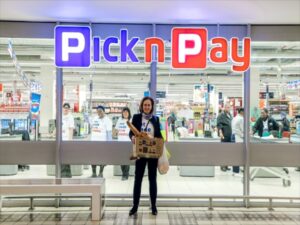Retail chain Pick n Pay has unveiled a “zero-waste” supermarket in Cape Town as part of its efforts to diminish waste in its operations.
The store will experiment with a net-zero waste approach by redirecting food waste to local farmers, composting facilities, or waste-to-energy plants. According to BusinessTech, the group states that “all edible surplus food – food that has passed its sell-by date but not its use-by date – is already donated to FoodForward SA, which feeds almost a million people daily through 2,750 beneficiary organisations.” If the store proves successful, the retailer aims to replicate this model across more of its stores nationwide, with plans underway to extend the concept to its distribution centers. Pick n Pay Stellenbosch Square is leading the pilot project and has partnered with supplier Farmer Angus, diverting approximately 600 kg of food waste per week from landfills. “This is expected to save 1,500 kilograms of carbon emissions weekly – which is equivalent to a savings of 7,000 kilometers of emissions from a standard petrol car,” the company stated. At Pick n Pay Stellenbosch Square, staff will separate food and organic waste from general waste and recyclables. All food not suitable for human consumption is placed into separate bins, de-packaged in the waste service area, and sent to Farmer Angus. This includes all food except pork products, for which the retailer is experimenting with a composting solution as part of the pilot. The group emphasised that this model would help mitigate the environmental impacts of waste disposal while fostering a “virtuous cycle” that supports local agriculture.“Food waste is a significant contributor to carbon emissions. The partnership with Farmer Angus will see the nearby store’s expired food waste diverted from landfills to Farmer Angus’s pigs, effectively turning waste into a valuable resource for farmers,” explained Steffen Burrows, Sustainability Manager at Pick n Pay.
“We are repurposing organic waste as animal feed, effectively closing the loop on waste generation and consumption. What brings this project even more full circle is that we stock Farmer Angus’ products on our shelves.” Angus McIntosh, the owner of Farmer Angus, highlighted that the pigs on the farm will benefit from a new varied diet, including items such as fruit, vegetables, and even expired doughnuts. “Not only do the pigs that eat the food waste become cured meat sold in Pick n Pay stores, but expired food is no longer going to landfill, which means that no methane will be discharged into the atmosphere from the food waste. Methane has 25 times the global warming potential of CO2.” Pick n Pay emphasised that the initiative goes beyond reducing its carbon footprint and aligns with the broader principles of conscious consumerism, environmental protection, and community involvement. This initiative is part of Pick n Pay Group’s larger commitment to reducing food waste and its environmental impact. The retailer has set a target to reduce food waste within its organisation by 50% by 2030. In the previous financial year, the group managed to divert 62% of its food waste from landfills through donations and preventing surplus food from going to waste. “We want this pilot to serve as a blueprint for future sustainability endeavors across our stores and beyond,” Burrows concluded.






